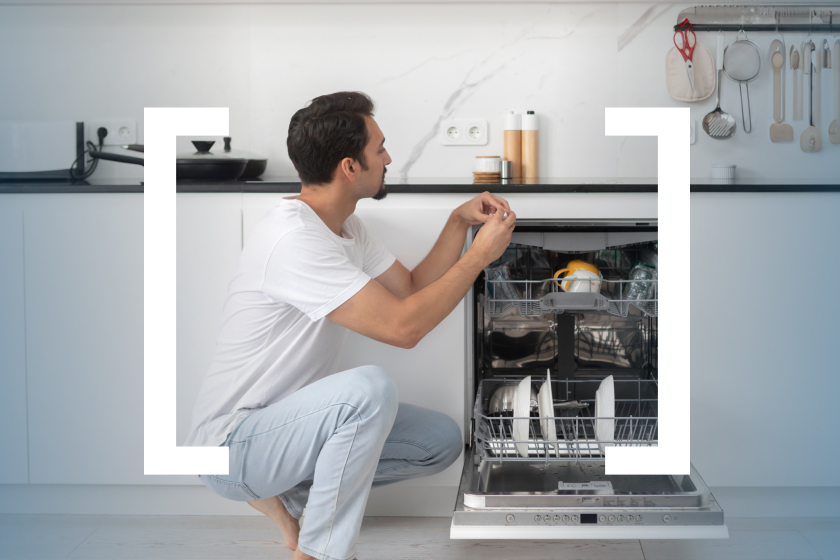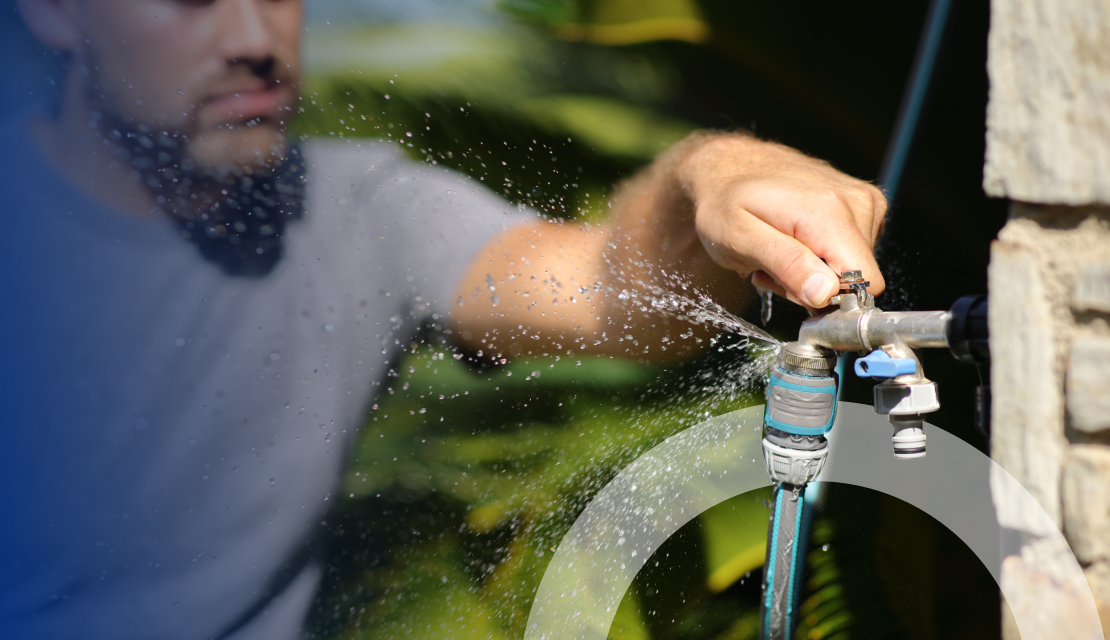
A dishwasher is supposed to simplify your life, not create extra work. But when it stops draining, leaving a pool of water behind, it can feel like a major setback. And you’re probably left wondering, “why dishwasher not draining?”.
This frustration is especially common in Alabama’s humid climate, where appliances work harder and face more wear and tear. Many homeowners find that having a reliable home warranty company in Alabama provides peace of mind when dealing with these unexpected breakdowns.
But there’s no need to stress! Fortunately, most draining issues have simple fixes that you can handle yourself. Explore seven possible causes for a clogged dishwasher and also find out some of the quickest ways to get it back on track.
If your kitchen has a garbage disposal, it could be why is dishwasher not draining. Food scraps or grease can clog the disposal, blocking the drainage hose. Run the disposal for a few seconds to clear any debris. If the water doesn’t drain, it might be time to clean the hose or the drains thoroughly.
Dishwashers are equipped with filters that are designed to trap food particles, grease, and fats to keep your appliance clean. However, when they get clogged with food and grease, the water can’t drain properly, leading to standing water.
A thorough wash every two weeks helps prevent blockages and keeps your dishwasher draining efficiently, saving you from future headaches.
A clogged drain hose is often the reason why dishwasher not draining. The hose moves dirty water to the sink’s drain. But, over time, kinks, twists, or debris buildup inside the hose can obstruct the flow.
When this happens, the water can’t properly exit the appliance, causing it to remain stagnant inside the dishwasher. As a result, you may notice standing water that refuses to drain, leaving your dishes soaking in unwanted liquid.
Your dishwasher’s pump is responsible for expelling water, but when it fails, drainage problems follow. Common causes of pump malfunction include objects, such as broken glass or food and grease buildup, which can stop the water from draining. As a result, you may find water sitting in your dishwasher instead of flowing out.
You might not realize it, but using the wrong detergent can cause your dishwasher to stop draining. Traditional dish soap creates too many bubbles, which can clog up the system and prevent proper drainage. Dishwasher detergent is specially designed to create fewer suds, helping the water flow smoothly and drain correctly.
For dishwashers installed with an air gap, a blockage can be the cause of why the dishwasher is not draining. The air gap prevents water from siphoning back into the dishwasher, but if it’s obstructed, water can get trapped inside. This results in dirty water sitting in your dishwasher instead of draining properly and leaving your dishes clean and dry.
A frozen water inlet valve could cause drainage problems in your dishwasher. This valve, located behind the control panel and bottom panels, controls water flow into the dishwasher. If it’s frozen or malfunctioning, it can either let water flow uncontrollably or block it entirely, leaving you with standing water in your appliance.
Don’t let a clogged dishwasher ruin your day! Let a home warranty handle the hassle. Call 800-670-8931 for a FREE quote.
Here are some quick troubleshooting tips you can try to unclog the dishwasher or fix the draining issues yourself.
Keep your disposal fresh by tossing some ice cubes down and turning it on. The ice will dislodge debris and buildup from the blades without causing any damage. Let it run for 20-30 seconds, then flush with water to ensure it clears out the obstructions. You should make it a habit to run it for 15 seconds daily to keep things running smoothly in the future.
To ensure you don’t face the problem again, “why dishwasher not draining?” check and clear the sink drain by adding one cup of baking soda and two cups of vinegar. This helps clear the buildup in the pipes. Let it fizz for 30 minutes, then by adding dish soap and hot water down the drain.
You can avoid drainage issues by cleaning your dishwasher filter regularly. Look in your manual to spot the exact location of the filter and follow instructions on how to clean it properly.
To keep your dishwasher draining properly, remove and clean the air gap by unscrewing it. Use a stiff brush to clear out any debris, and check the drain hose for any blockages while you’re at it.
Pay attention to any odd noises or unusual sounds from the pump. If it’s faulty, cleaning or replacing it could fix the issue. Refer to your manual for details; otherwise, consider calling a professional to repair it.
Recognizing the early signs of a clogged dishwasher is crucial to avoid bigger issues, no matter the cause. Here are five warning signs to watch for why dishwasher not draining.

No one looks forward to costly dishwasher repairs, and sometimes, replacing the appliance just makes more sense. A home warranty coverage helps reduce the financial strain by covering repairs or replacements.
You don’t even have to take the hassle of calling a technician. Just file a claim, and your warranty provider takes care of the rest. They will send an expert to diagnose and resolve the issue. Select Home Warranty offers a range of plans tailored to your needs. If your dishwasher is covered, you’re protected from unexpected breakdowns.
The next time your dishwasher malfunctions, don’t let the thought, “why is my dishwasher not draining?” stress you out. Instead, identify the issue and try the DIY fixes mentioned above.
Acting fast can help you avoid costly repairs, while regular maintenance wards off future drainage problems. Remember, a little attention now keeps your dishwasher running smoothly because no one wants to deal with dirty dishes piling up!

Don’t wait until it’s too late! Check out our current plans and get your free quote.

Home Warranty
The cost to repair home appliances can quickly add up. Is it worth it to fix your old refrigerator, or would buying a new one be cheaper? Knowing the price..

Household Tips
Notice a steady drip from your outdoor faucet every time you turn it off? You are probably dealing with a common problem many homeowners face. Knowing how to fix a..

Home Warranty
Congratulations on owning your home! Homeownership brings pride, stability, and... unfortunately, some surprise expenses, too. While you budgeted for the mortgage, property taxes, and insurance, what about the washer that..